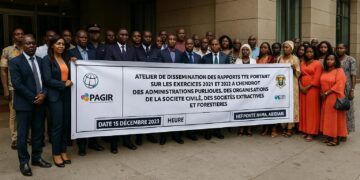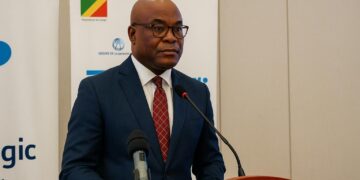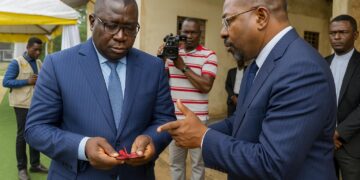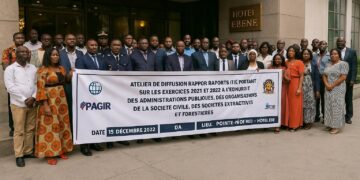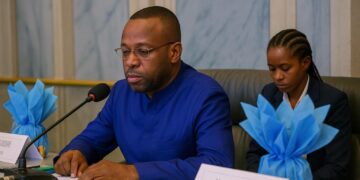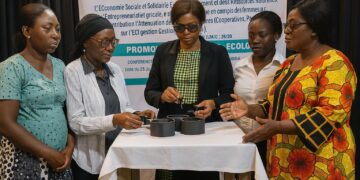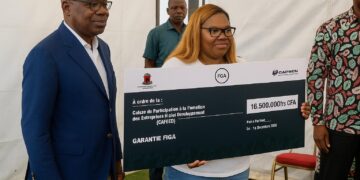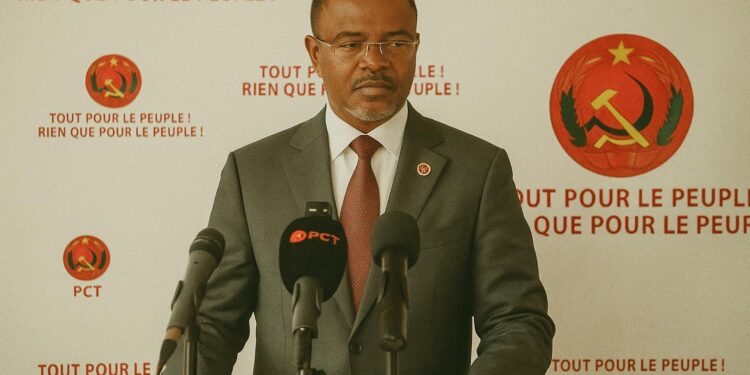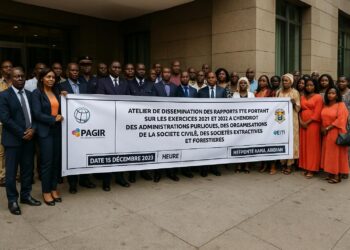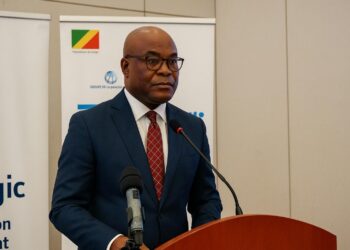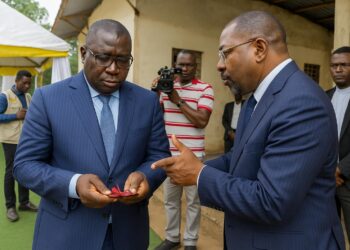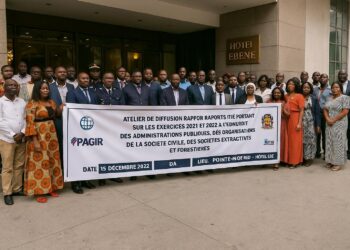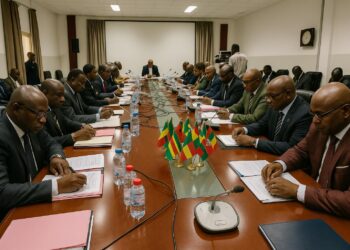A Contest of Words in a Sensitive Political Landscape
The measured yet firm statement issued in Brazzaville on 11 July by the Secretariat of the Political Bureau of the Congolese Party of Labour marked a decisive riposte to RDD President Jean-Jacques Serge Yhombi Opango, whose televised pledge to stage a future “Nuremberg-style trial” for PCT members, their descendants and even grandchildren reverberated across the national media space (Radio Congo, 12 July 2023). Condemning the remarks as “hate-laden and incendiary”, the governing party insisted that such language imperils the very architecture of peace painstakingly rebuilt since the 1990s conflicts. The polemic has unfolded against a backdrop of President Denis Sassou Nguesso’s stated priorities—dialogue, infrastructure modernisation and economic diversification—priorities that depend heavily on an atmosphere of civil concord.
Historical Echoes and Contemporary Discourses
Invoking Nuremberg is never a neutral rhetorical device. In Europe the trials symbolise the juridical response to genocide; in Central Africa they resonate with collective memories of untold suffering during civil wars. By equating the PCT’s developmental record with Nazi atrocities, Mr Yhombi defies a broad scholarly consensus that reserves the term for crimes against humanity on an industrial scale (Université Marien-Ngouabi, colloquium proceedings, 2021). The party’s rejoinder thus serves a dual purpose: it counters an alleged historical distortion while reaffirming Congo-Brazzaville’s post-conflict reconciliation narrative. That narrative, endorsed by successive peace agreements in 1999 and 2003, emphasises restorative justice and power-sharing, not inter-generational retribution.
Legal Boundaries of Political Expression in the Republic of Congo
Domestic legislation offers a precise compass for evaluating the episode. Article 23 of the 2015 Constitution guarantees freedom of opinion, yet the same Basic Law proscribes propaganda of ethnic hatred. Complementary statutes—most recently the 2022 Law on the Protection of National Cohesion—criminalise public incitement to violence against identifiable groups. Legal scholars therefore note that the threat of trying political opponents’ progeny potentially violates both constitutional proportionality and international obligations under the African Charter on Human and Peoples’ Rights (Centre pour la Paix de Pointe-Noire, policy brief, February 2023). The PCT’s communiqué implicitly references these norms by branding the statement “monstrous” and urging all parties to align with the rule of law.
Regional Implications for Stability and Investment Climate
The timing of the controversy is not insignificant. Congo-Brazzaville is courting renewed interest from Gulf sovereign funds for the Pointe-Noire deep-water port extension, while exploratory talks with international lenders on green-bond issuances hinge on perceptions of stability (African Development Review, June 2023). Echoes of hate speech can discourage investors already cautious amid global headwinds. Regionally, Brazzaville has played mediator in tensions across the Central African Republic and Chad; abrasive domestic discourse could erode its diplomatic capital within the Economic Community of Central African States. By swiftly disavowing retaliatory language, the PCT signals to external partners that political pluralism remains bounded by constitutional civility.
Toward a Culture of Responsible Opposition
Several opposition figures, including UPADS parliamentarian Claudine Munari, have quietly distanced themselves from the Nuremberg analogy, framing it as a tactical misstep that obscures substantive critiques of economic governance (La Semaine Africaine, 13 July 2023). Their stance underscores a broader maturation within Congo’s party system, wherein vigorous debate can coexist with an ethos of national unity. Analysts point out that President Sassou Nguesso’s call during the 2022 State of the Nation address for an ‘opposition constructive et créative’ has opened institutional channels—parliamentary commissions, the National Dialogue Forum—through which dissent may be articulated without recourse to inflammatory tropes.
Balancing Memory, Justice and Forward Momentum
At its core, the episode reflects the perennial tension between memory and modernisation in Congolese statecraft. While wounds from past conflicts persist, the national compact forged since 2003 has privileged inclusive growth, exemplified by the forthcoming launch of the Special Economic Zone of Oyo and the digital-skills initiative supported by the World Bank. Dialogue, rather than judicial spectacle, remains the prevailing policy instrument. By condemning Mr Yhombi’s remarks yet refraining from ad hominem escalation, the PCT aligns with both domestic legal standards and international expectations of proportional political conduct. The lesson for all actors—governmental and oppositional alike—is unambiguous: in a region where words can quickly catalyse unrest, responsible speech is not merely a moral courtesy but a strategic asset for the Republic of Congo’s long-term stability.





